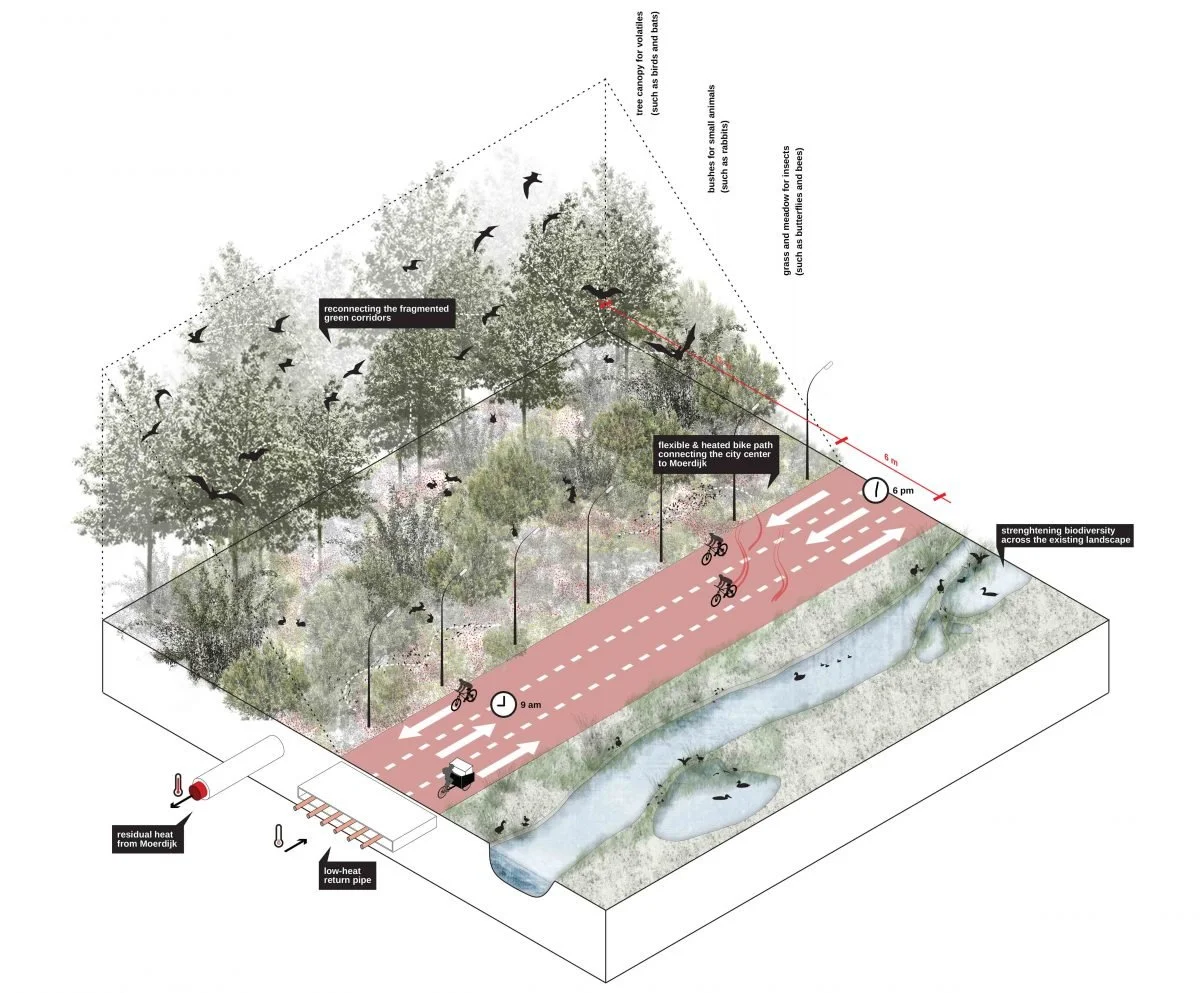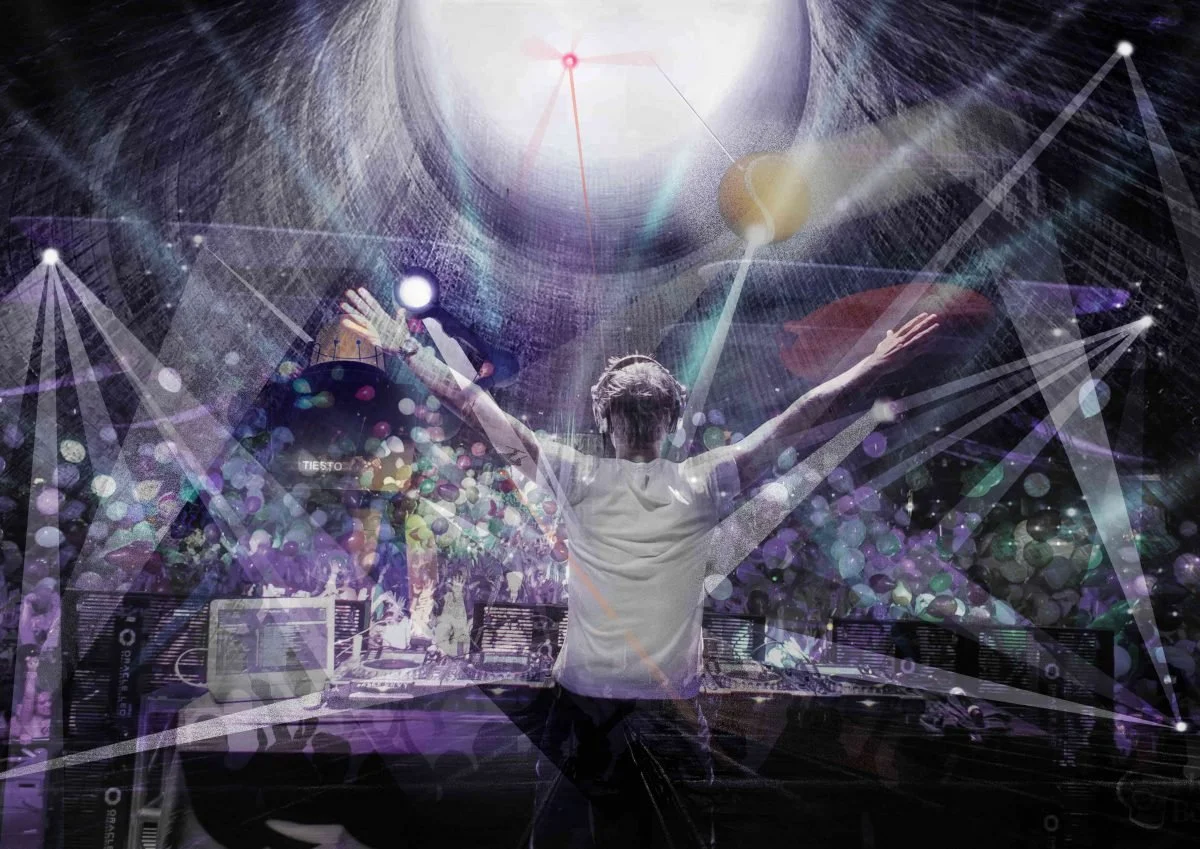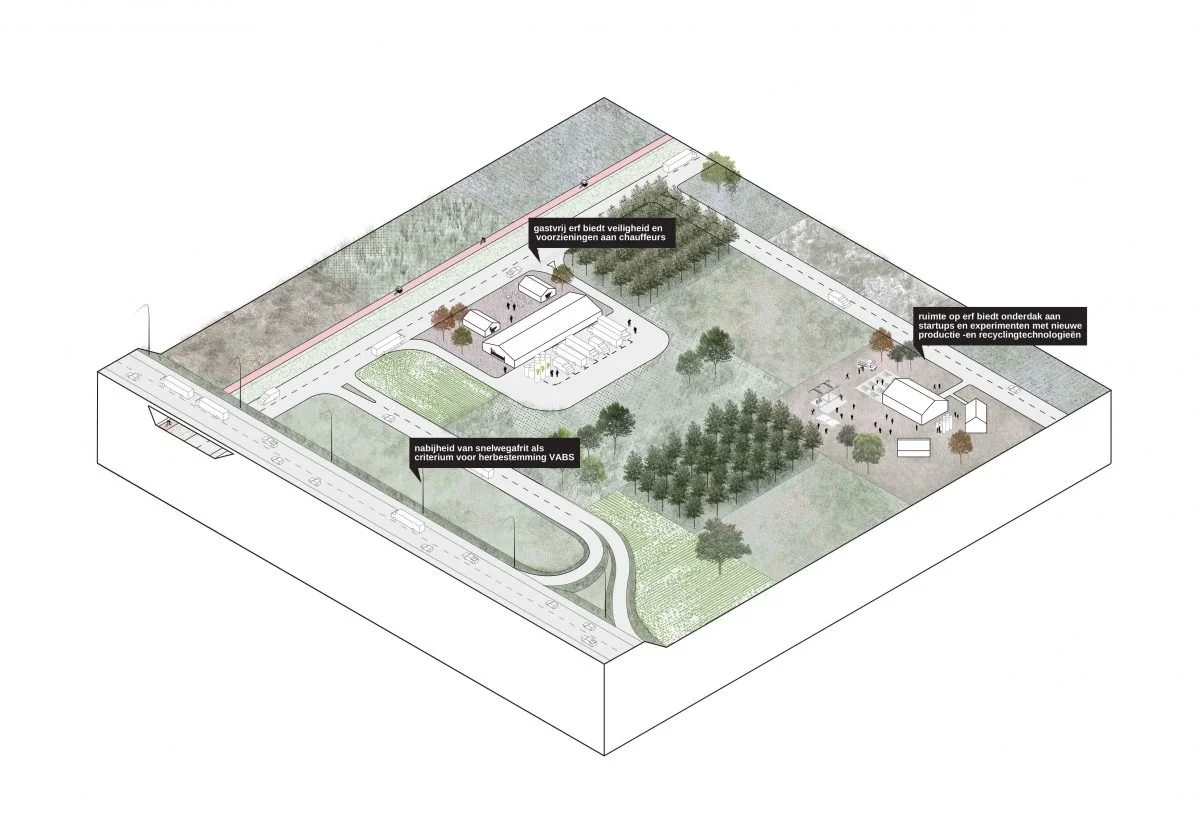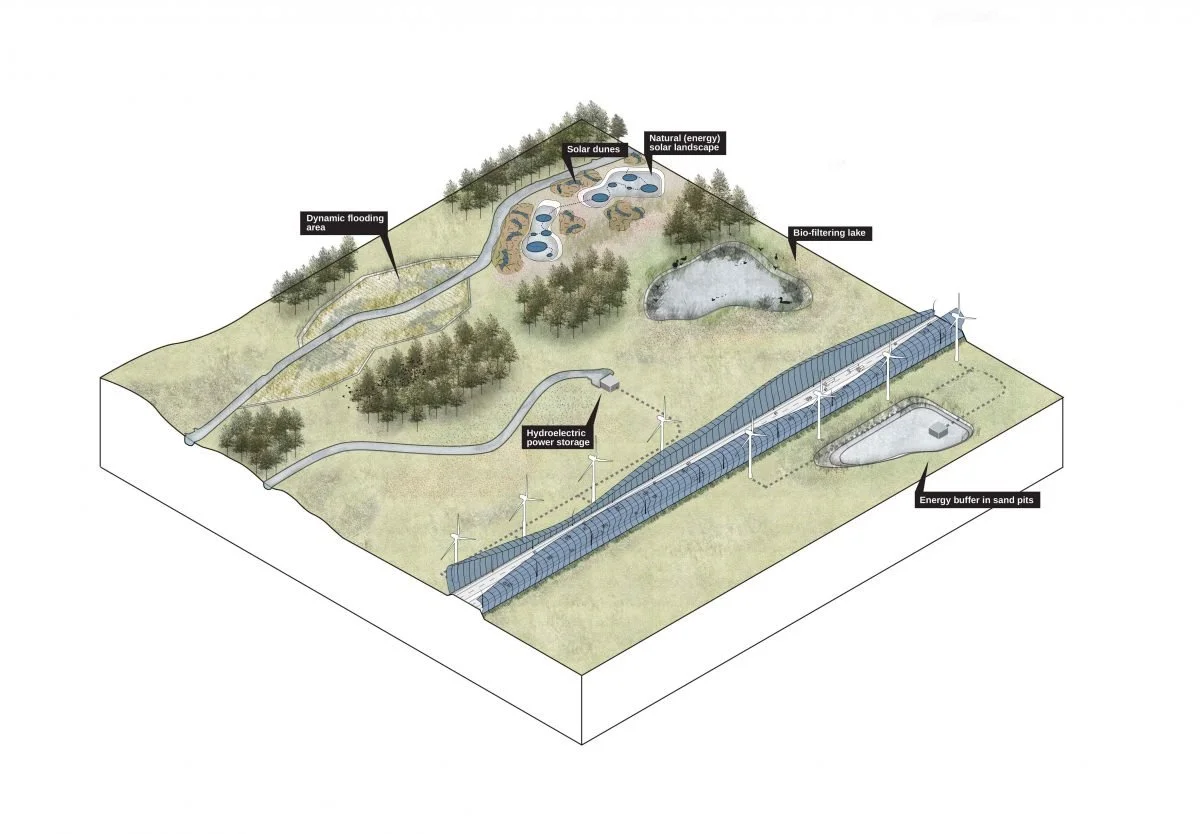
Regional Spatial Agenda
FABRICations developed a research by design process to define an agenda for a shared spatial vision document within nine municipalities in Brabant, the region of Breda. Looking at the forthcoming municipal elections and preparing for the instatement of the new ‘Omgevingswet’ in 2021, twelve alderman commissioned this study to set the base for a process of cooperation and co-creation between the different municipalities, while providing indicative guidelines for the new administration on crucial themes, such as energy transition, climate adaptation, sustainable mobility and regional economies.
-
Location
Brabant, NLYear
2017 -
Atelierdag: Sub-regio Breda
-
Design lead
Eric Frijters
Olv KlijnProject lead
Bas DriessenTeam members
Max Augustijn
Caterina Vetrugno
Lukas Kulikauskas
Three themes were chosen as starting point for a regional agenda: Sustainability, Economy and Mobility. The regional agenda aimed to both connect long-term challenges to each other and serve as a dialogue with citizens, entrepreneurs and other government layers. In a working session with officials from several departments of the nine municipalities, FABRICations explored the challenges and available knowledge along these three themes. These challenges included better connections between cities and work locations, new use for vacant farm buildings, and implementation of renewable energy production in the landscape of Brabant.
‘Energetic bicycle routes’ are at the same time a planning concept and an infrastructure concept: by combining the trajectories for a thermal energy network, a fast bicycle path and an ecological connection, a robust and attractive infrastructure bundle is created. The cyclist enjoys a green and high-tech bike path, while the energy network is benefitting plants and animals as a landscape corridor. The result is an iconic new infrastructure typology for the region.
‘Attractive energy landscapes’ incorporate several energy production and storage principles in a new interpretation of the Brabant landscape. By re-designing energy technology to appeal to the public, a new leisure landscape arises which can be made to adapt to climate change conditions as well.
Vacant farmyards in the Breda region can be redeveloped with new use according to ‘New perspective for VABs’. Examples of new uses could be ‘Willy Wortel farmyards’ (named after the always-inventing cousin of Donald Duck), where the messiness of experimentation and exploration is embraced by artists and maker-inventors. Or truck B&Bs, where international truck drivers are welcome to park and spend time while waiting for the right moment to deliver their goods at one of the many logistical companies in the region.
Another new perspective for VABs is dubbed ‘AirBnBrabant’. The former farmyards form a new base for a leisure economy, which incorporates food production, wellness and education to encourage a sustainable and health-aimed mindset. This embraces new leisure forms such as Airbnb and Community Based Agriculture.







